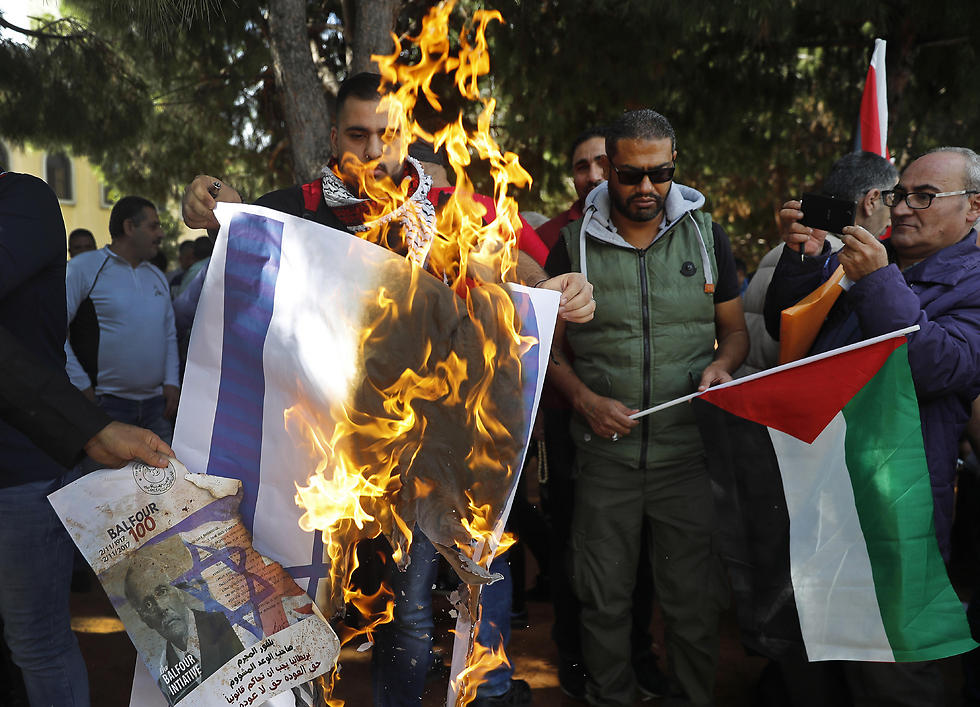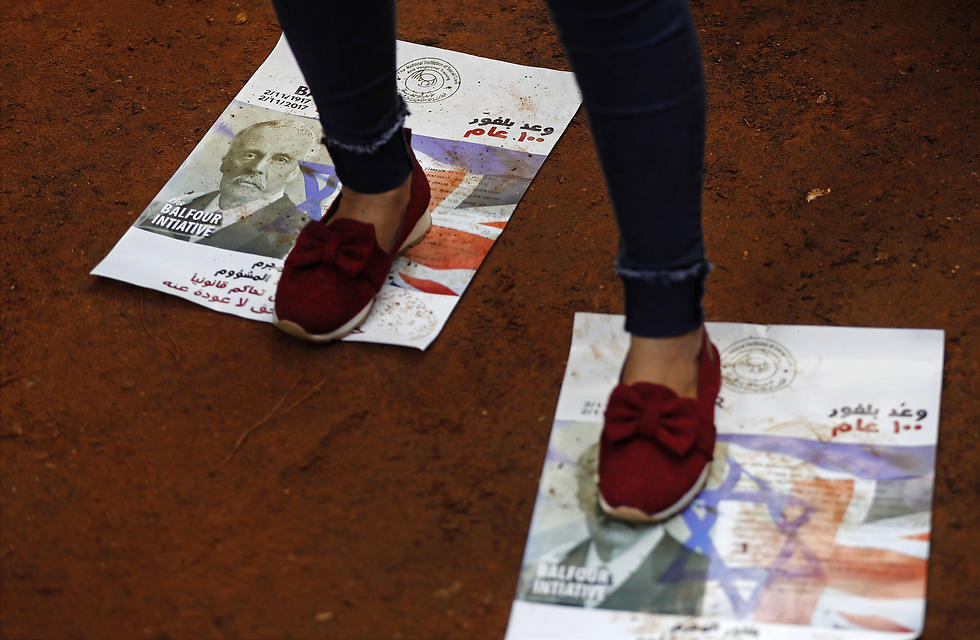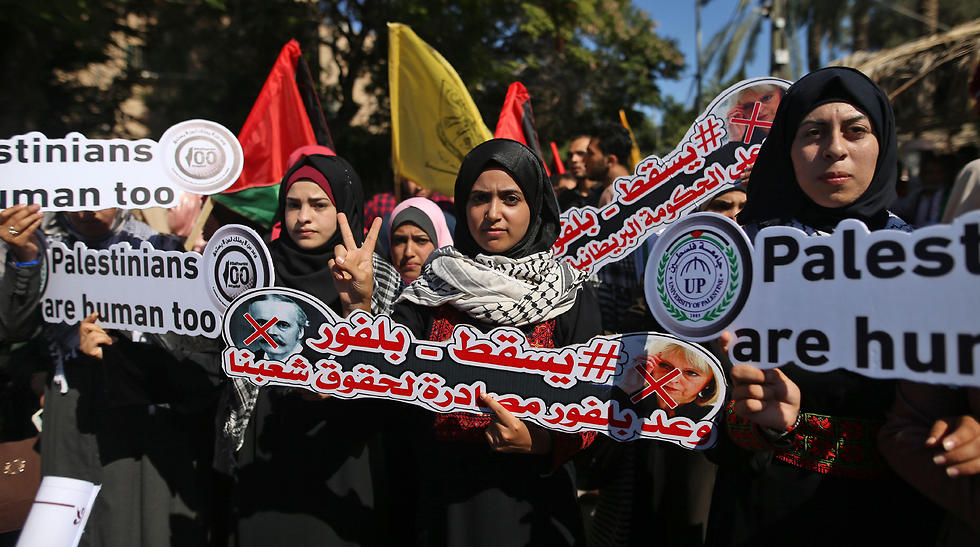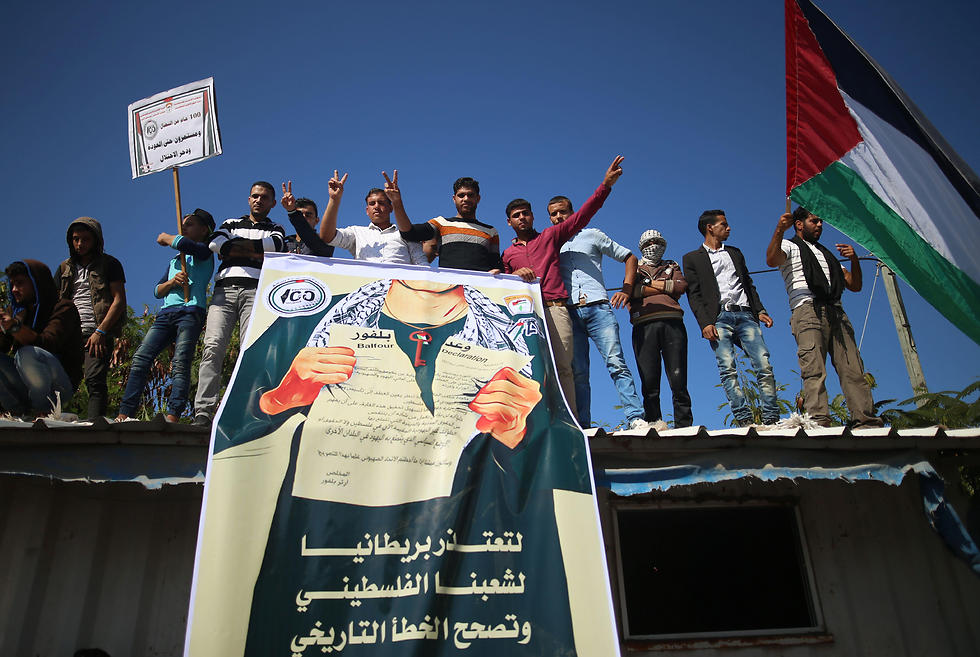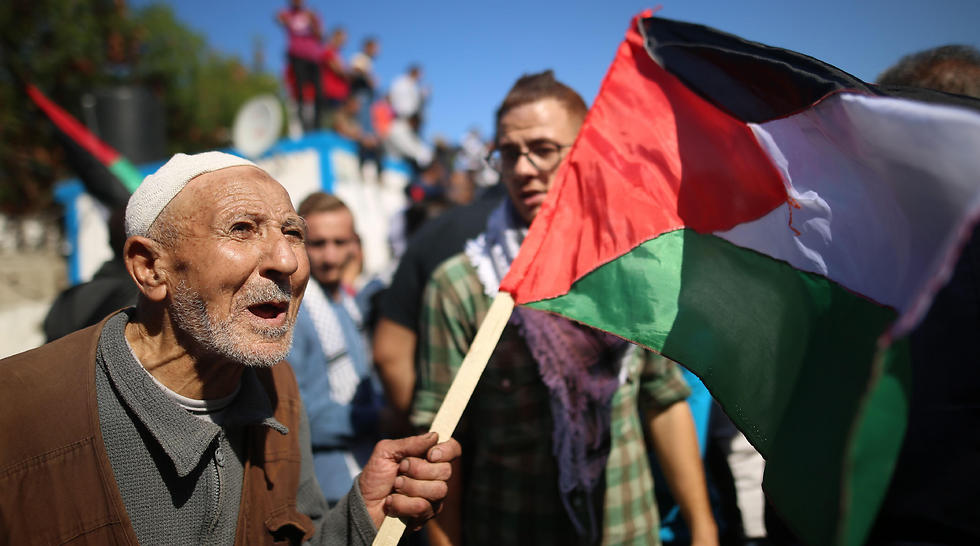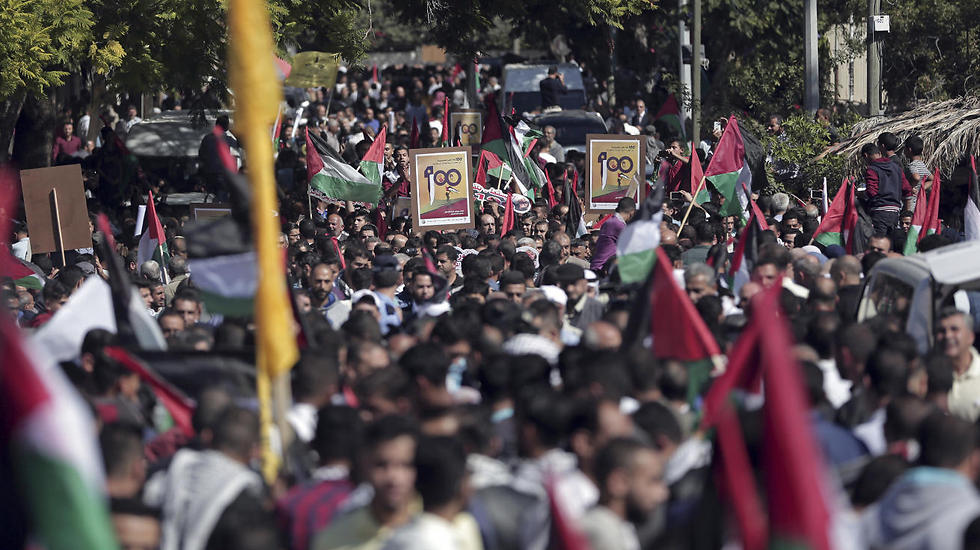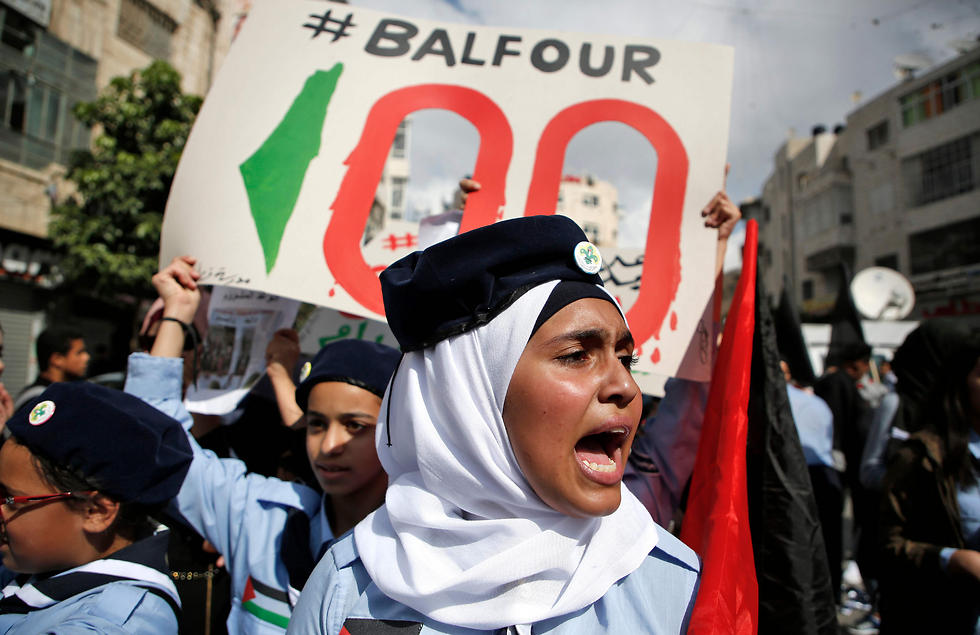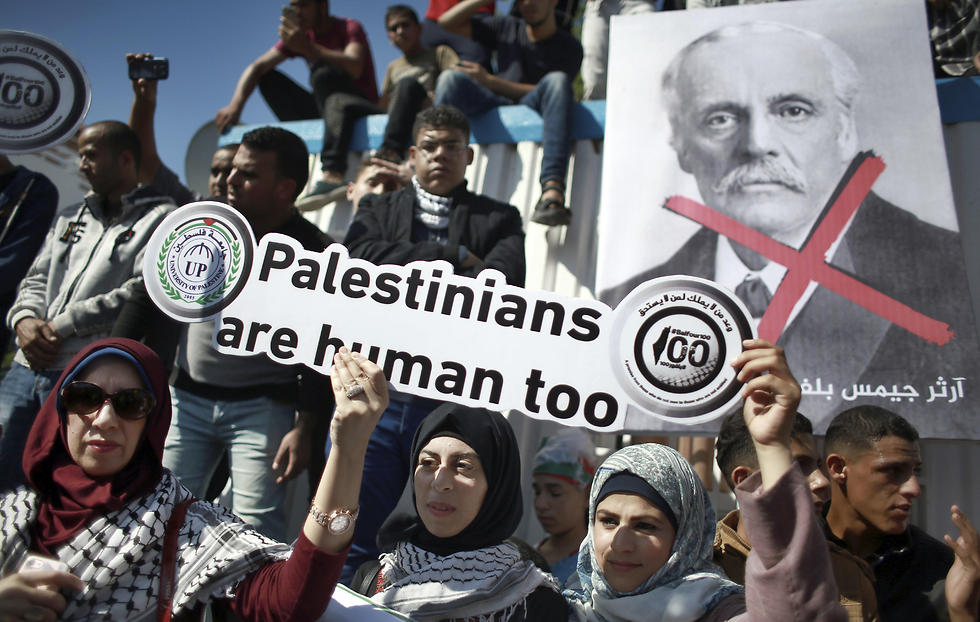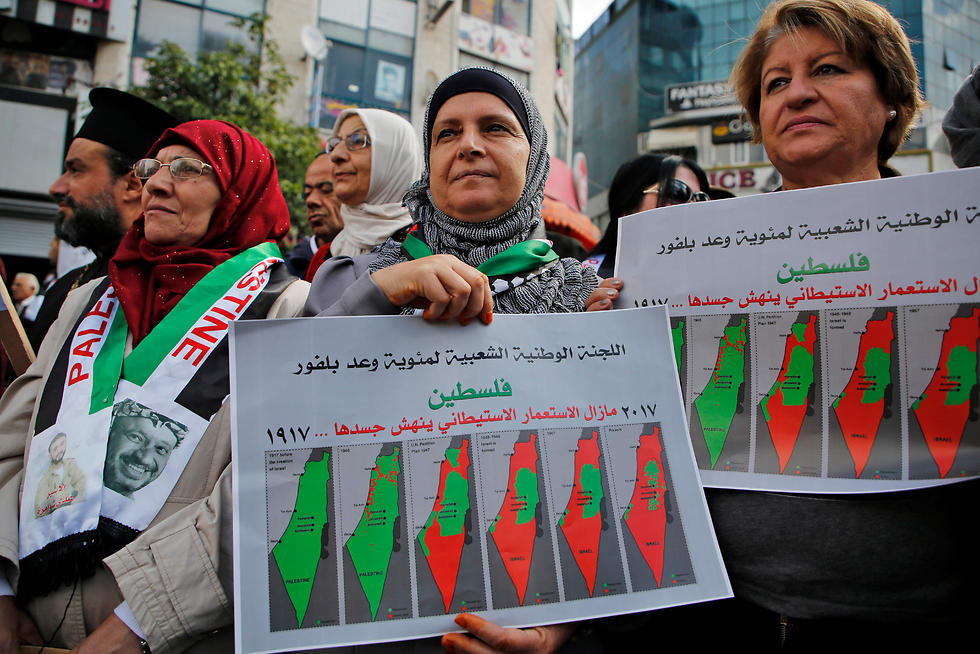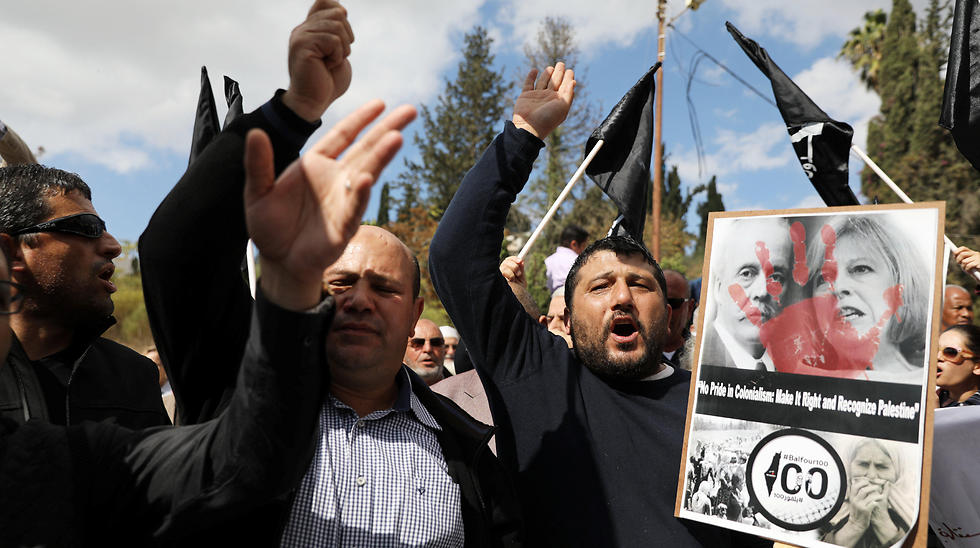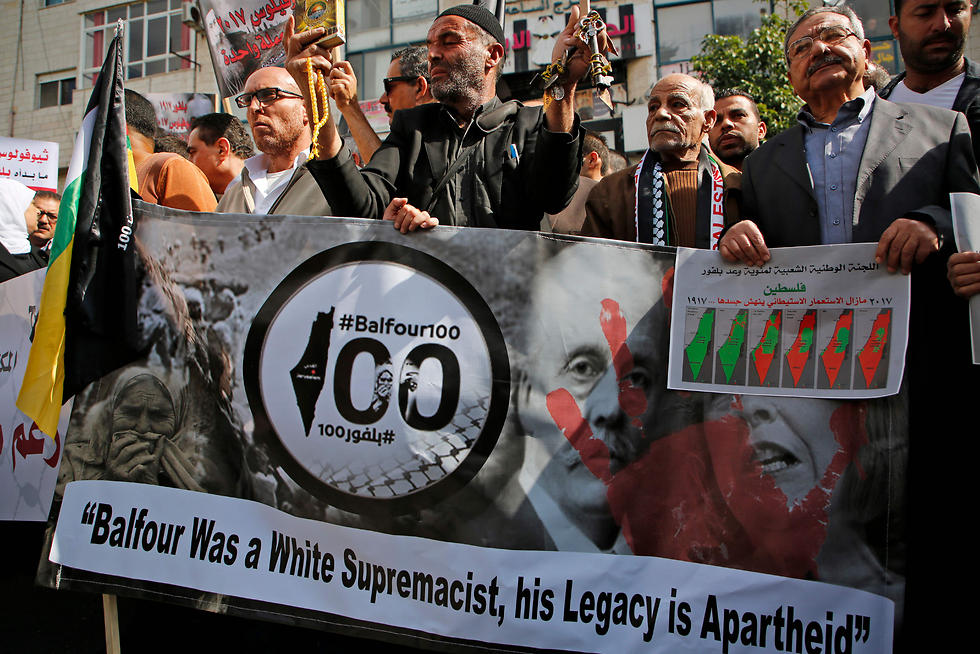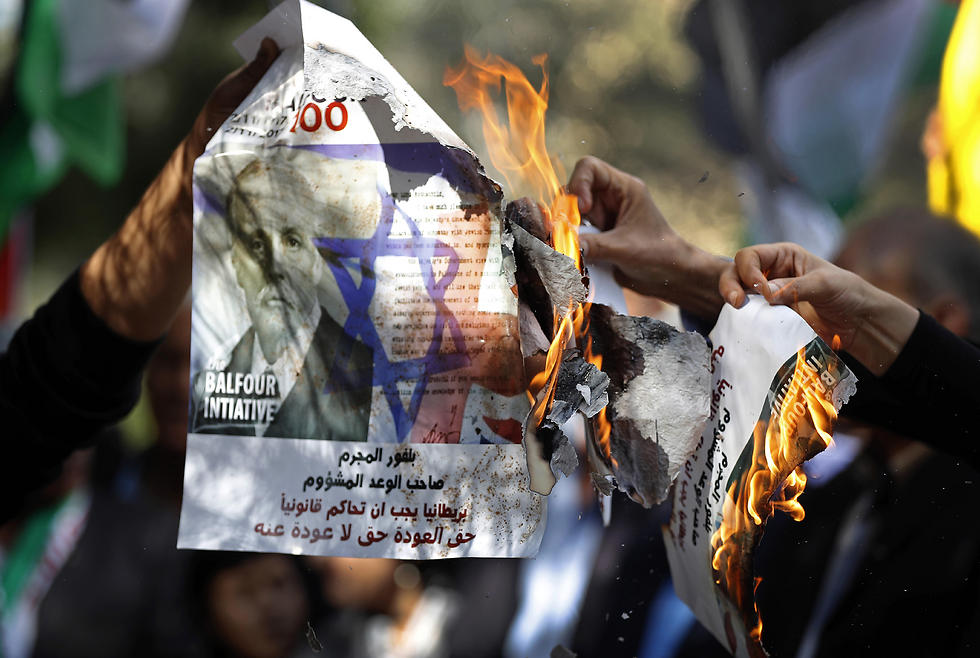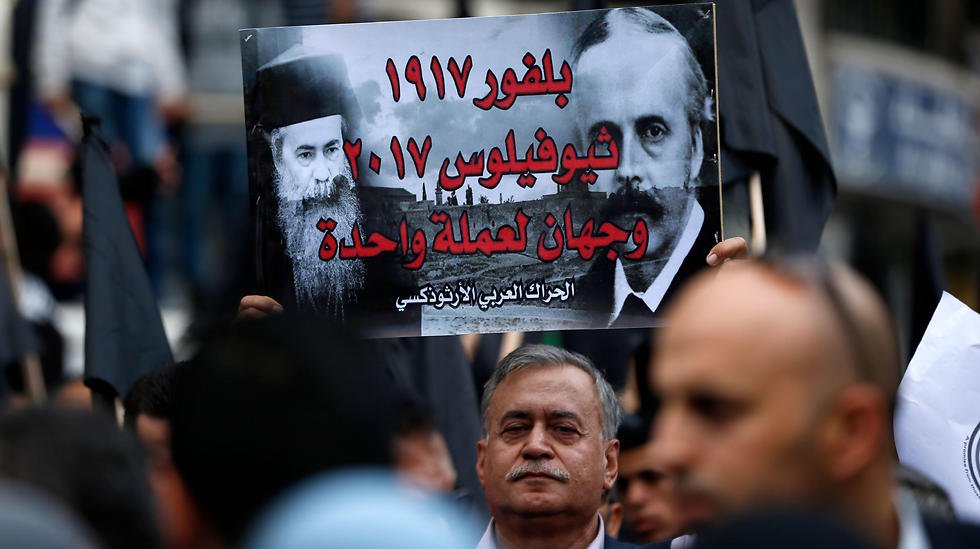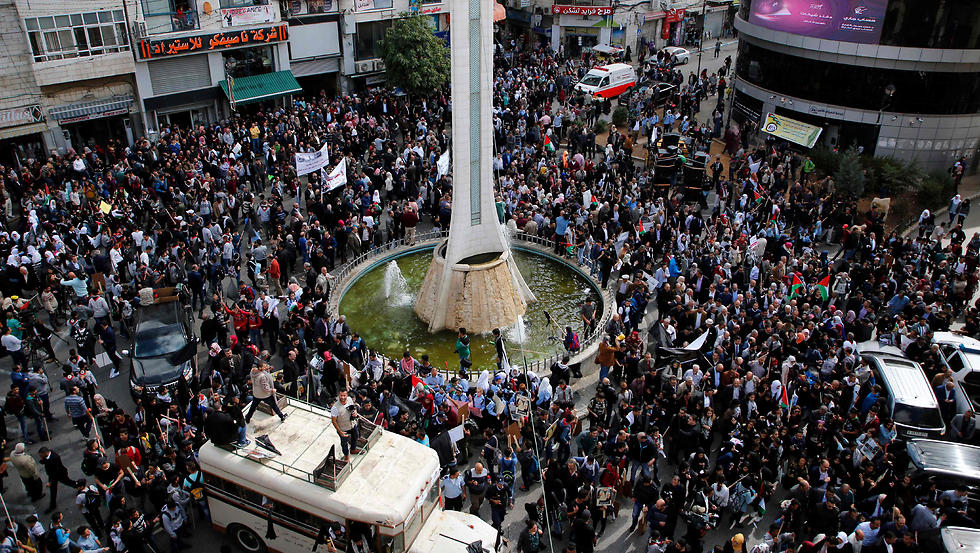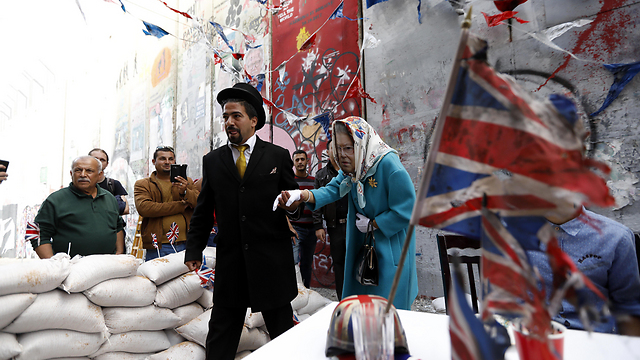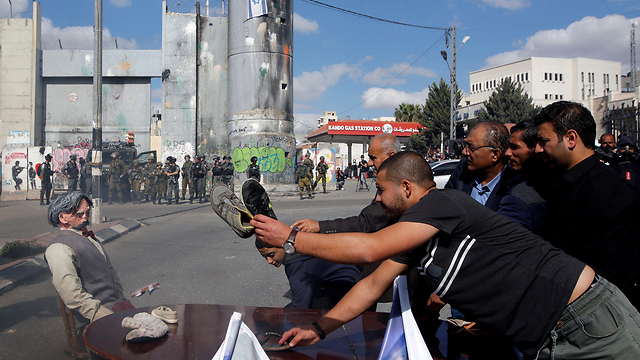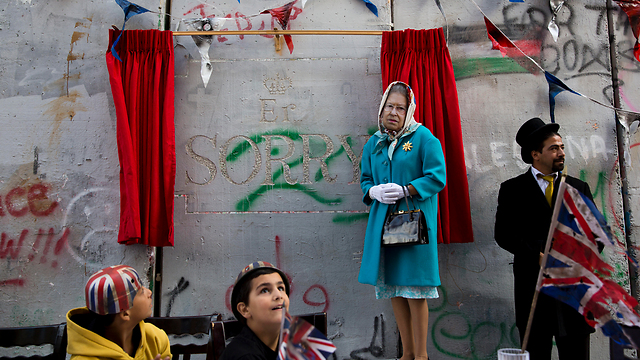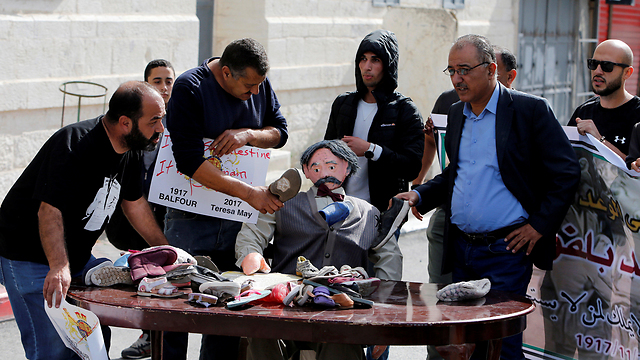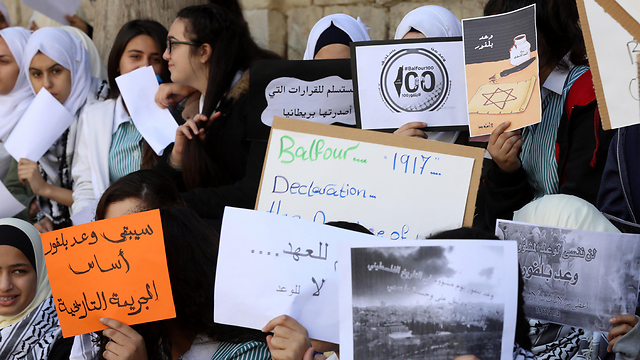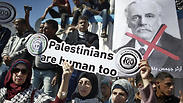

Palestinians protest Balfour Declaration on 100th anniversary
As PM Netanyahu prepares to attend banquet in London hosted by Balfour and Rothschild's descendants, Palestinians and their supporters take to the streets in the West Bank, Gaza, Beirut and even the British capital to demand UK recognition of a Palestinian state.
Thousands of Palestinians took to the streets in protest across the West Bank, in Gaza, and Beirut on Thursday marking a century since the Balfour Declaration, Britain's promise to Zionists to create a Jewish home in what is now Israel.
In Ramallah, some 3,000 protesters marched from the city center to the British Consulate, with many waving black flags and banners with slogans such as "100 years of dispossession."
Smaller demonstrations took place in east Jerusalem and elsewhere in the West Bank and in Gaza. Protesters waved Palestinian flags and held banners demanding Britain rectify its "historical sin".
In Gaza, Ahmed Helles, a senior official from President Mahmoud Abbas's Fatah movement, said: "Britain should feel ashamed and stigmatized because of this promise and not hold celebrations."
Rawada Odeh, a demonstrator in Jerusalem, said she was protesting because Balfour promised a home to the Zionists while neglecting that there is a "Palestinian population here in our land."
"The land does not belong to Balfour," she said. "We are Palestinians, and we are living here and we are following our issue till we succeed."
The 1917 declaration, which contains only a 67 words, served as the basis for the British Mandate of Palestine, which was approved in 1920 by the League of Nations. The following decades saw a spike in the number of Jews immigrating to Palestine as Zionist state institutions took root. With that came increased friction with the Arab population.
Israel views the pledge as the first international recognition granted to the Jewish people's desire to return to its historic homeland. It sees Britain as having played a supporting role in a narrative dominated by the determination, heroism and pioneering spirit of the early settlers who fought to build the state.
Israel declared independence in 1948, at the end of British Mandatory rule and after the UN General Assembly voted in 1947 in favor of a plan, rejected by Palestinian representatives, to partition Palestine into an Arab state and a Jewish state.
The Palestinians see the declaration as the original sin, a harbinger of their "nakba," or catastrophe, the mass displacement that resulted from the war surrounding Israel's creation. That refugee crisis reverberates across the region today, and the Palestinians have cast Israel, through the declaration and its imperialist British patrons, as a colonial enterprise.
Palestinian have demanded Britain apologize for a declaration they see as having led to dispossession and suffering. It has refused to do so.
Prime Minister Benjamin Netanyahu will mark the anniversary in London on Thursday at banquet hosted by descendants of Balfour and the recipient of his declaration, Jewish community leader Walter Rothschild, and attended by Prime Minister Theresa May in the gilded halls of London's Lancaster House mansion.
According to advanced excerpts of her speech, May will say at the banquet: "I believe it (the declaration) demands of us today a renewed resolve to support a lasting peace that is in the interests of both Israelis and Palestinians, and in the interests of us all."
But Netanyahu and May dine, protesters in London and in the Palestinian territories will gather to demand that Britain acknowledge the suffering they say the declaration has caused to Palestinian people, and recognize their claim to statehood.
Palestinian President Mahmoud Abbas used an article in Britain's Guardian newspaper to reiterate calls for the British government to acknowledge the declaration as a mistake.
"The creation of a homeland for one people resulted in the dispossession and continuing persecution of another, now a deep imbalance between occupier and occupied," he wrote.
"The balance must be redressed, and Britain bears a great deal of responsibility in leading the way."
Attempting to strike strike a delicate diplomatic balance, Britain's foreign secretary, Boris Johnson, on Monday praised the declaration for helping to create a "great nation," but he also said the spirit of the declaration had not been fully honored.
"The vital caveat in the Balfour Declaration—intended to safeguard other communities—has not been fully realized," he said, referring to a clause in the document which said nothing should prejudice the civil and religious rights of existing non-Jewish communities.
Johnson said Britain would be willing to recognize a Palestinian state, but wanted to time it to give maximum impetus to peace efforts.
"We certainly will do it, we want to do it,” but now is not yet the time," he said. "That on its own will not end the occupation or bring peace."
In Israel, the Knesset will hold a special commemorative session. The Foreign Affairs and Defense Committee will hold what was described as a "special celebratory meeting" entitled "100 years since the Balfour Declaration, to independence, to becoming a regional superpower."
"While the state would not have arisen without settlement, sacrifice and a willingness to fight for it, the international impetus was undoubtedly the Balfour Declaration," Netanyahu told a meeting of his cabinet ahead of his visit to London.
Some Arab MKs said they would boycott the celebrations.
Banksy's West Bank tea party
British street artist Banksy has offered a royal "apology" engraved on Israel's barrier in the West Bank for the Balfour Declaration.
The work was unveiled on the eve of Thursday's centenary of the Balfour Declaration at a mock tea party for Palestinian children at the artist's Walled Off hotel that opened last march in the town of Bethlehem.
"Er ... Sorry", read the inscription, a double entendre, on the grey Israeli-built wall. ER, standing for Elizabeth Regina, with the Roman numerals II between the two letters, is Queen Elizabeth's royal cypher.
The point was hammered home at the event by having an actor dressed as the monarch pulling back a red curtain that covered the etching.
A statement issued by Banksy said the work was commissioned from a professional stone carver whose previous credits include Buckingham Palace and Westminster Abbey.
"This conflict has brought so much suffering to people on all sides, it didn't feel appropriate to 'celebrate' the British role in it," the statement said.
Banksy, whose real name is not known, has described his guesthouse as having the worst view of any hotel in the world: every room overlooks a walled section of the Israeli barrier that cuts through the West Bank.
Palestinians see the barrier as a symbol of oppression. Israel says it is a bulwark against Palestinian attack.














